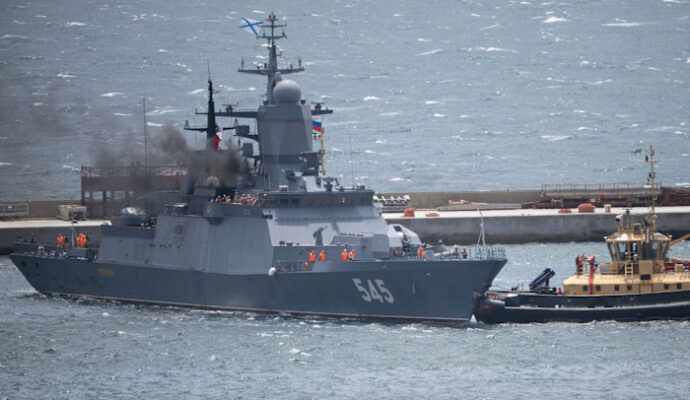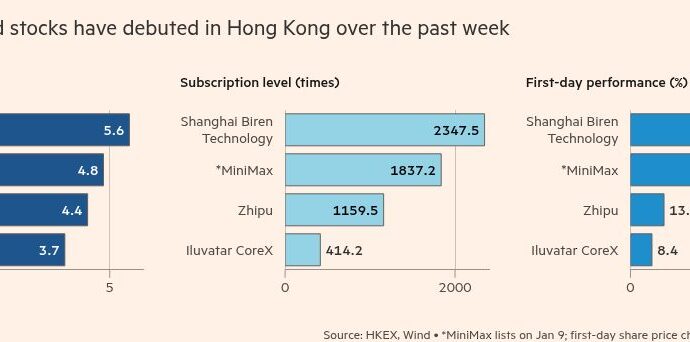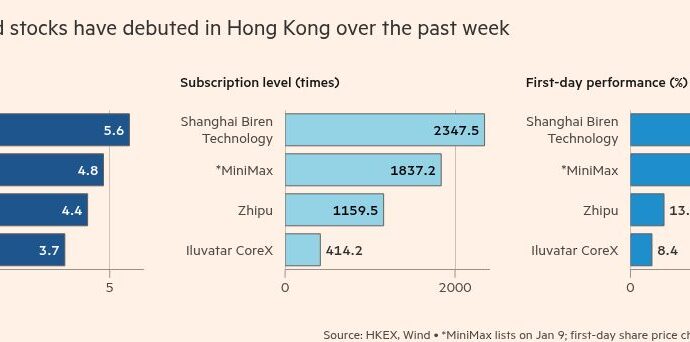Unlock the Editor’s Digest for free
Roula Khalaf, Editor of the FT, selects her favourite stories in this weekly newsletter.
Indonesia will introduce a $2bn stimulus to encourage consumer spending on everything from flights to presents during the holiday season, a senior government minister has said, as President Prabowo Subianto tries to revive the troubled economy.
Indonesia, one of the world’s largest consumer markets with a population of more than 280mn, is grappling with weaker purchasing power and a sluggish job market, threatening its ability to maintain stable economic growth of about 5 per cent.
In an interview, Airlangga Hartarto, the co-ordinating minister for economic affairs, told the Financial Times that the government would offer discounts on transport, groceries, retail purchases, and tax exemptions on airline tickets. These new measures would be on top of $4.5bn worth of stimulus announced since December 2024.
“For the Christmas one, I think the target is almost $2bn in one month,” Airlangga said. “We push them [consumers] to spend. That is important, because some of them are holding their investment and keeping the money in the banking system.”
The stimulus was also necessary to reassure investors hesitant because of trade tensions with the US, he added. “We would like to give them certainty that the government is keen to maintain resilience in the domestic market,” he said.
On top of measures to incentivise spending, the Indonesian government is also expanding banking liquidity in the hope of promoting credit growth, which is near three-year lows.
This month, finance minister Purbaya Yudhi Sadewa said the government would disburse Rp200tn ($12bn) from government cash reserves to the country’s state-owned banks. Airlangga said the liquidity injection would prompt banks to lower interest rates further and accelerate loan growth.
The stimulus measures come as Prabowo looks to reset Indonesia’s economy, which has been beset with a sharp slowdown in consumer spending, a shrinking middle class and inability to create well-paid jobs.
Resource-rich Indonesia has in recent decades built its economy around the export of commodities, particularly nickel — a critical raw material for stainless steel and electric vehicle batteries.
However, the commodities sector has failed to create high-quality jobs. Indonesia has also neglected the more productive and labour-intensive manufacturing sector, which is struggling to compete with regional peers such as Vietnam and Malaysia, and is laying off thousands of workers.
Official figures show annual growth near 5 per cent — a level that Indonesia has been able to maintain over the past decade except during the pandemic — but economists expect the expansion to dip below 5 per cent for this year. The IMF and the World Bank expect GDP growth at 4.7 per cent.
Airlangga said the government was confident of hitting its GDP growth target of 5.2 per cent for this year.
“We need the global market to be certain. The key will also be domestic purchasing power . . . and government spending,” he said.
Prabowo aims to accelerate annual economic growth to 8 per cent during his term, in part through welfare programmes that have become the cornerstone policy of his government.
Airlangga said recent trade deals signed by Indonesia would support growth by attracting investment and creating jobs.
Jakarta this month signed a trade deal with the EU after almost a decade of negotiations. The bloc is Indonesia’s fifth-largest trading partner, with trade reaching about $30bn last year.
“[The deal] gives a morale boost for the business people, and we believe that we can increase our trade in five years by 2.5 times,” said Airlangga.
Indonesia has also signed a trade deal with Canada, the first south-east Asian country to do so.
Jakarta negotiated a US tariff rate of 19 per cent, after it was initially threatened with 32 per cent. Airlangga said the two countries were in talks over the possible removal of tariffs on commodities such as palm oil, coffee and rubber.
In the wake of US tariffs, Indonesia is pushing to find markets outside the US. Prabowo was pushing “international relations at the highest level” and was keen to expedite Indonesia’s membership in various economic blocs, he said.
Jakarta hopes to finalise a trade agreement with the Eurasian Economic Union this year. Indonesia was formally announced as a member of Brics in January and is currently in the process of joining the OECD.


